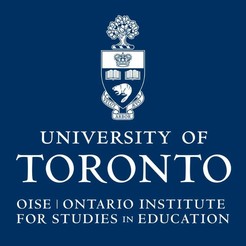This month’s Spotlight comes from Language, Culture and Hub member Mingyi Li. Mingyi is a Ph.D. student at the Ontario Institute for Studies in Education (OISE) at the University of Toronto. For her Master’s degree, she explored how Western influence has affected Chinese doctoral students’ understanding of the West before they came to Canada, as well as their decision to select Canada as the destination to advance their academic careers.
The Language, Culture and Justice Hub recently held a webinar that explored related issues. Entitled “Toward Language Justice in Higher Education,” the event featured Hub members Marguerite Lukes, Vijay Ramjattan, and Shawna Shapiro. View a recording of the webinar here.
In this Spotlight piece, I wish to present a small part of my MA thesis from OISE. The overarching goal of this thesis was to examine the identity formation of Chinese international students – born in the 1990s and having spent a substantial amount of time living in both China and Canada – as they negotiate their understanding of race, nationality, values and beliefs throughout their settlement journey in North American countries. This Spotlight aims to present how the language learning experiences of Chinese students before they come to the West can change their behaviors when they settle in the West.
The findings of my study indicated that all participants received “standardized North American English accent” training at different levels when they were in China. The impacts of the accent training were different for each individual participant. According to participants’ stories, the ideology of native-speakerism was deeply embedded in the professional thinking of and activities used by their English teachers during the time they studied in China. For example, one participant recounted:
 I do not think that we have the choice of having ‘Chinese accent’ when speaking English in China’s education system. We only can have North American accent or UK accent. I remember our elementary and secondary English curriculums were all North American English. My English teachers in high school asked us to repeat after all kinds of North American radios. We were required to try our best to have the same pronunciation and speaking habits as white people.
I do not think that we have the choice of having ‘Chinese accent’ when speaking English in China’s education system. We only can have North American accent or UK accent. I remember our elementary and secondary English curriculums were all North American English. My English teachers in high school asked us to repeat after all kinds of North American radios. We were required to try our best to have the same pronunciation and speaking habits as white people.
Another participant shared a very similar story:
All of my English teachers in elementary schools and my after-school English classes played the North American and UK radios for us. They wanted us to have the same accents as those broadcasters. I think the accuracy of English speaking was very emphasized in China’s English classroom. We tend to find the most accurate pronunciation [of English]. I cannot even have the same pronunciation as the Chinese broadcasters when I speak Chinese, which is my mother tongue. How is it possible to have the accurate pronunciations as the English broadcasters?
The process of asking students to imitate North American and British accents formed a colonized mentality within the language classroom. It divided students into accent hierarchies based on the level that they could speak the so-called standard English. As a result, the colonized mentality led to alienation and estrangement, which is often “accompanied by the internalization of deficit views toward self and community, inherently shaped by the scorn, hostility, and resentment of the dominant elite toward a subaltern population” (Darder, 2018, p. 12). One participant in this study explicitly indicated that, because of her training in standard English speaking in China, she has always been very conscious of her own accent when speaking English. Although she fully respects the diverse accents of English, she still critically judges her own accent and grammar every time she speaks English publicly.
This particular finding in my study reflects a prevalent phenomenon in the language classroom, where monolingual ideologies still dominate teaching practices and there is a lack of critical consciousness. As language educators, we should neither annihilate nor devalue students’ dignity and their cultural backgrounds; rather, we should raise their cultural confidence through English teaching, and allow them to deconstruct, critique, reform, and reconstruct the ideological foundations of knowledge and culture.
